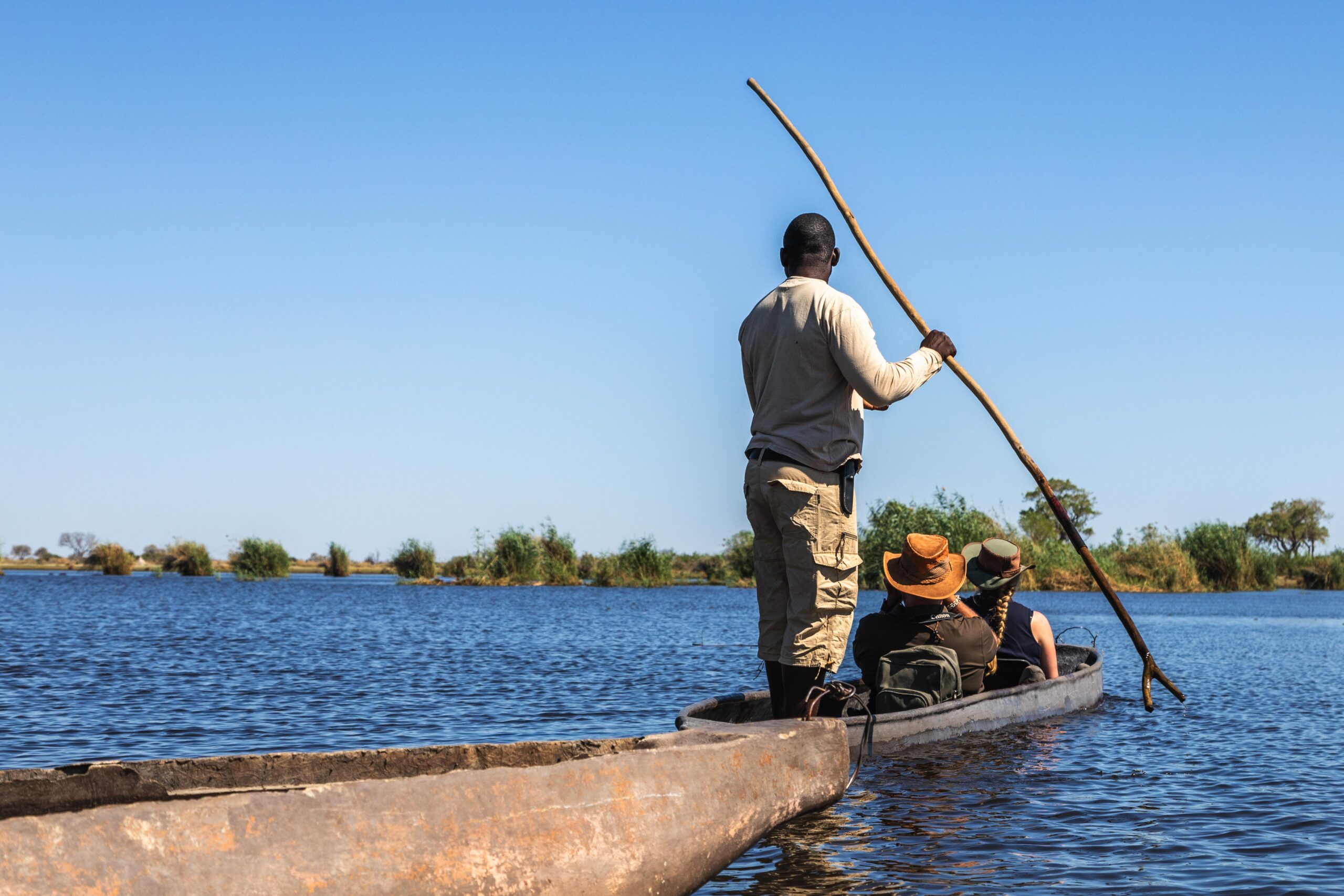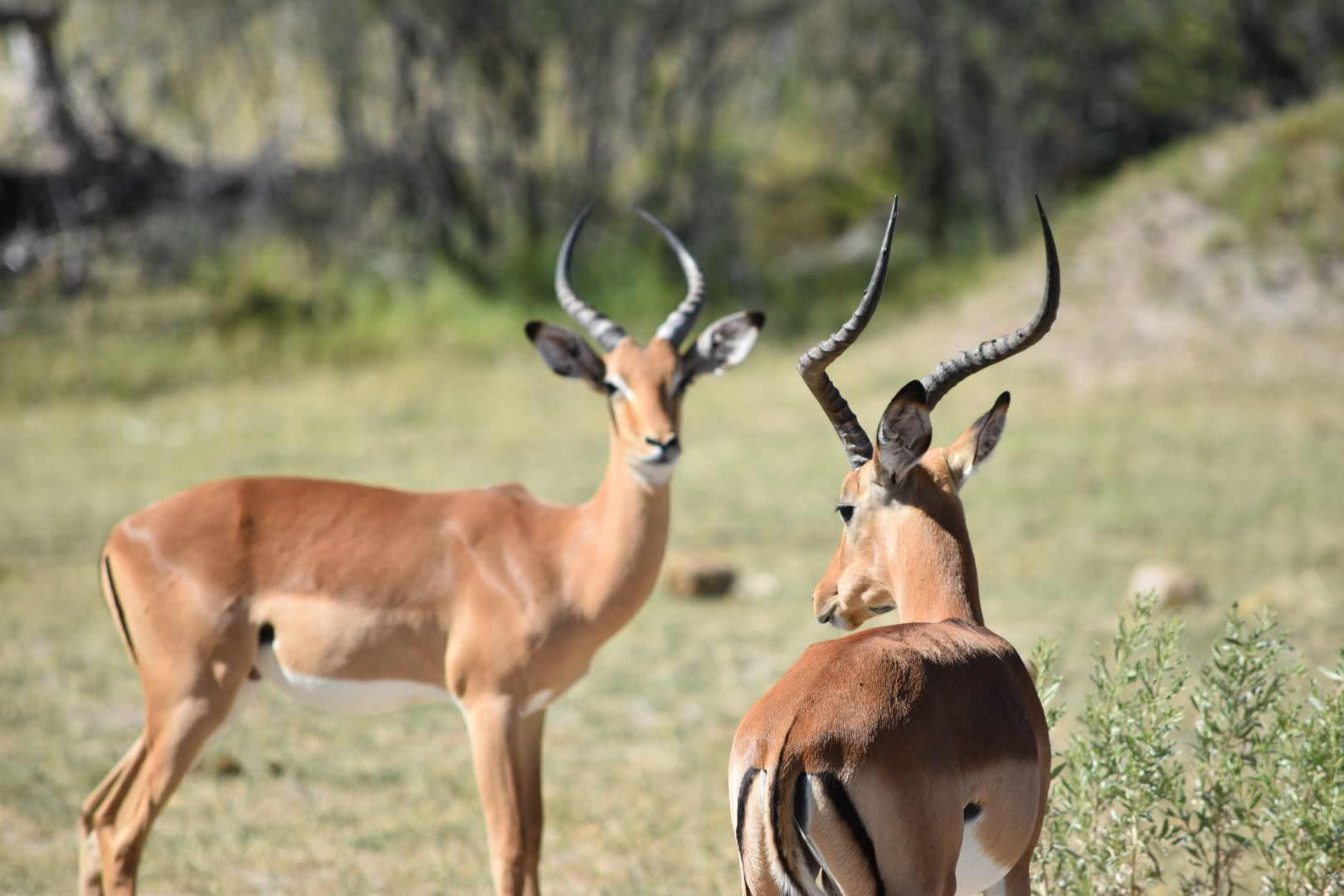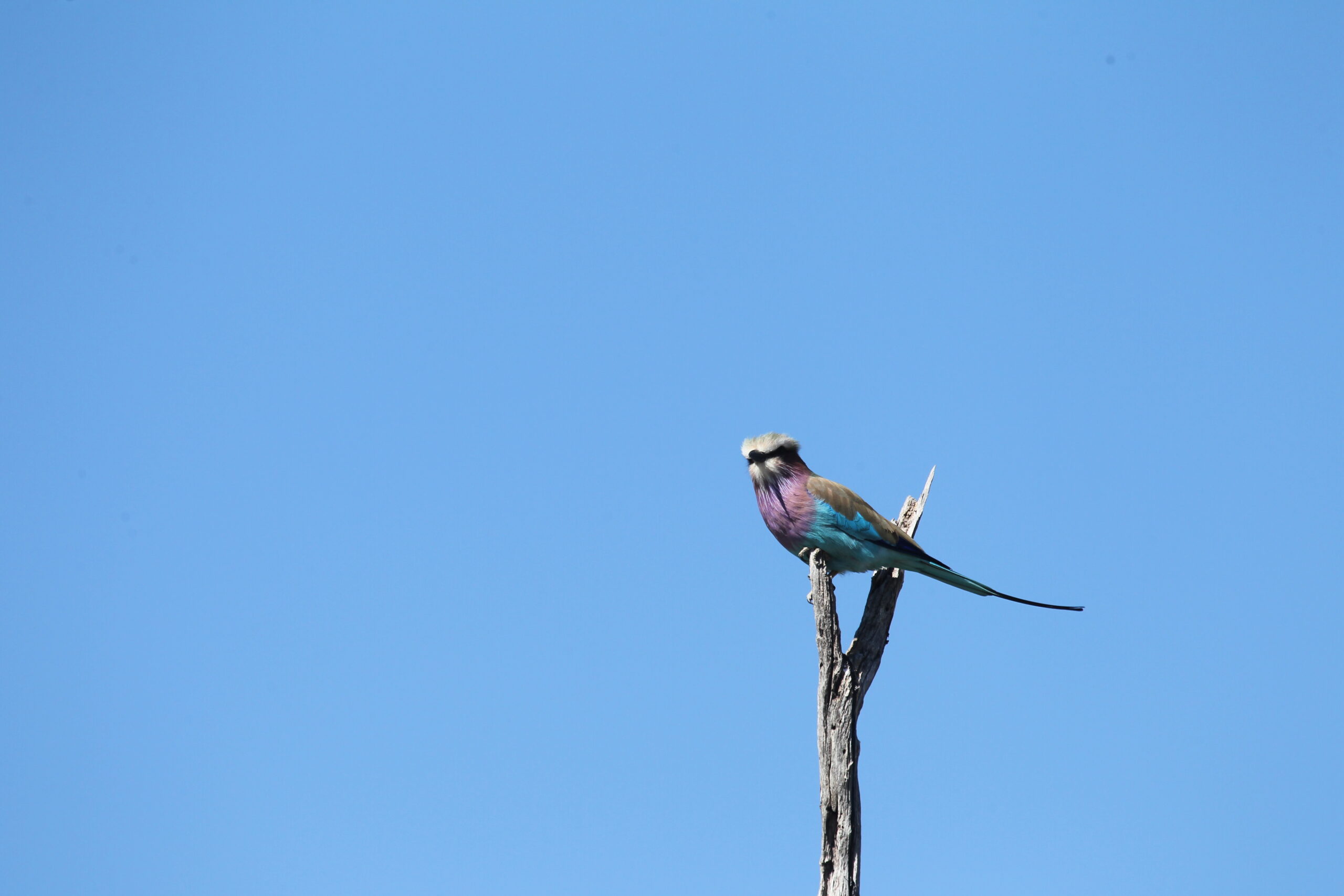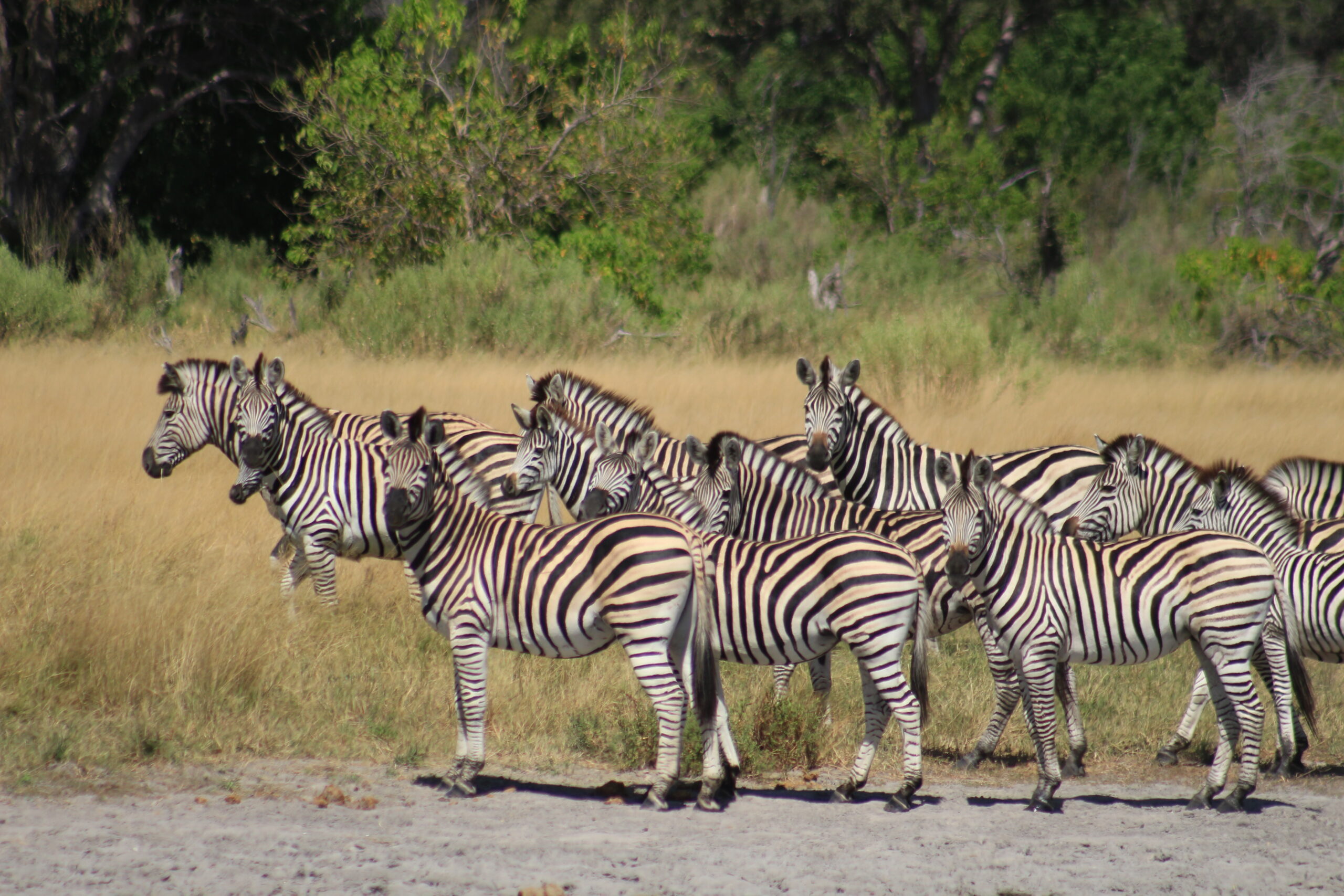A Mokoro trip in the Okavango Delta is a peaceful way to explore its beautiful waterways. The mokoro, a traditional canoe, is guided through the delta by a local guide. The trip starts early in the morning when the delta is calm and wildlife is active. You’ll silently float through channels surrounded by reeds and grasses, with chances to see animals like hippos, crocodiles, elephants, and many birds.
Midway, you’ll stop on an island for a nature walk where your guide will explain the plants, animal tracks, and smaller creatures in the area. After the walk, you’ll enjoy a picnic lunch on the island, surrounded by nature.
In the afternoon, you’ll return, with more chances to spot wildlife as the sun sets. A Mokoro trip is a relaxing and eco-friendly way to experience the Okavango Delta, giving you a close look at its wildlife and natural beauty in a quiet, sustainable way. It’s perfect for those wanting a peaceful safari experience.
Itinerary
You will be taken by a 4 x 4 open sided vehicle from Maun to Daunara (NG32) which will take about 1 hour 30 minutes. Once you arrive, the poolers will introduce themselves and pole you for another 1 hour 30 minutes.
Exploring the waterways of the Okavango delta in a Mokoro is definitely the ultimate way to immerse yourself in the experience.
After approximately an hour and a half, you will arrive at the Island and the camp staff will prepare a lunch table for you while they work on setting up the camp. After taking a nap, you can go on a nature walk to track animals and experience the amazing bird life up close. Walking allows for a more immersive experience of the bush, especially in observing the plants and animals that are easily missed.
During the second day of your Mokoro safari in the Okavango Delta, you have the chance to further discover the special scenery and animal life through these two outings:
Early Mokoro Trip for Bird Watching in the Morning
Begin the morning by embarking on a serene mokoro journey, led by a skilled guide. Move quietly through the translucent water pathways, maneuvering through tight passages bordered by lofty papyrus and reed clusters. Birdwatching is best done in the early morning when the Delta is teeming with activity. Be on the lookout for colorful animals like the African Fish Eagle, Lilac-breasted Roller, and different types of herons and kingfishers. Your guide will assist in spotting animals on the river's edge, such as crocodiles, hippos, and possibly a timid antelope approaching to quench its thirst from the water.
Exploring nature on an island or floodplain through a walk.
In the afternoon, following a lunch break, participate in a guided walking safari on a neighboring island or floodplain. This walk provides a distinctive view of the Delta's ecosystem, allowing you to closely observe plants and small creatures that may go unnoticed from the mokoro. Your guide will describe different kinds of plants, such as medicinal ones, and point out paths made by elephants, buffalo, or predators such as lions and leopards. It is also a great chance to expand your knowledge on the traditional uses of plants and the natural history of the area.
Both activities allow you to closely interact with the surroundings and observe the abundant wildlife in the Okavango Delta.
After breakfast, take a final guided walk through the bush or along the nearby floodplain. This walk will allow you to revisit some of the sights and sounds you’ve experienced during the safari, but with a fresh perspective. Your guide can help you track animals, observe birds, or simply reflect on your time in this pristine wilderness. On your return to camp, take some time to relax, perhaps reflecting on the journey with fellow travelers, sharing stories, and enjoying the serene surroundings one last time before you depart.




